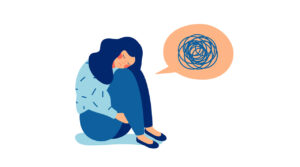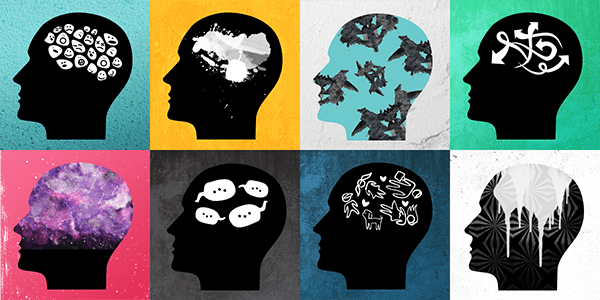If you’re like most people, you probably think of psychiatry as a field that only deals with mental disorders. However, integrative psychiatry is a growing field that incorporates a variety of different approaches to treatment, including traditional and alternative medicine. In this comprehensive guide, we will discuss what integrative psychiatry is, the different approaches it uses, and how it can benefit you or your loved one.
Contents
- 1 What Is Integrative Psychiatry?
- 2 What Does Integrative Psychiatry Treat?
- 3 Goal of Integrative Psychiatry
- 4 Common Treatment Modalities of Integrative Psychiatry
- 5 Factors Affecting Integrative Psychiatry Technique
- 6 Tips To Keep In Mind While Selecting Integrative Psychiatry
- 7 Benefits of Integrative Psychiatry
- 8 Limitations of Integrative Psychiatry
- 9 Conclusion
What Is Integrative Psychiatry?
 Intēgrative (adj): characterized by the coordinated function of parts working together to promote harmony. Integrative psychiatry is a branch of medicine that takes a holistic approach to mental health care. It aims to treat the whole person, not just the symptoms of their mental illness. This type of care often includes complementary and alternative therapies, such as yoga and meditation, in addition to traditional medical treatments like medication and therapy.
Intēgrative (adj): characterized by the coordinated function of parts working together to promote harmony. Integrative psychiatry is a branch of medicine that takes a holistic approach to mental health care. It aims to treat the whole person, not just the symptoms of their mental illness. This type of care often includes complementary and alternative therapies, such as yoga and meditation, in addition to traditional medical treatments like medication and therapy.
The goal of integrative psychiatry is to help people live their best lives by addressing all aspects of their mental health. Integrative Psychiatry also takes into account how a person’s lifestyle choices can impact their mental health. For example, someone who regularly eats unhealthy foods or doesn’t get enough exercise is more likely to experience mental health problems than someone who takes care of their body and mind.
Integrative psychiatry is still relatively new, but it’s growing in popularity as more people are looking for ways to improve their mental health without relying solely on medication. If you’re interested in learning more about this type of care, talk to your doctor or mental health provider. They can help you decide if integrative psychiatry is right for you.
What Does Integrative Psychiatry Treat?
Integrative psychiatry can help to treat a wide variety of mental and physical health conditions, including:
Anxiety Disorders
Anxiety disorders are one of the most common conditions that integrative psychiatry can help to treat. Symptoms of anxiety disorders can include feeling excessively worried or stressed, having difficulty sleeping, and feeling irritable or on edge.
Depression
Depression is another common condition that integrative psychiatry can treat. Symptoms of depression can include feelings of sadness, hopelessness, and worthlessness. Depression can also cause physical symptoms such as fatigue and changes in appetite.
Bipolar disorder
Bipolar disorder is a mental illness that causes extreme mood swings. People with bipolar disorder can experience periods of depression, followed by periods of mania. Symptoms of mania can include feeling excessively happy or energetic, being easily distracted, and engaging in risky behaviors.
Obsessive-compulsive disorder (OCD)
OCD is a type of anxiety disorder that causes people to have intrusive, unwanted thoughts (obsessions) and/or engage in repetitive behaviors (compulsions). People with OCD often feel like they can’t control their thoughts or actions.
PTSD
PTSD is a condition that can occur after someone has experienced or witnessed a traumatic event, such as a natural disaster, car accident, or act of violence. Symptoms of PTSD can include having flashbacks, feeling anxious or on edge, and avoiding things that remind you of the trauma.
Eating disorders
Eating disorders are a type of mental illness that can cause people to have a distorted view of their body and/or engage in unhealthy eating behaviors. There are several different types of eating disorders, including anorexia nervosa, bulimia nervosa, and binge-eating disorder.
Sleep disorders
Sleep disorders are a type of physical health condition that can cause problems with sleeping. People with sleep disorders may have difficulty falling asleep, or staying asleep, or they may wake up feeling exhausted. Sleep disorders can also lead to other problems, such as daytime fatigue and irritability.
Chronic pain
Another condition that integrative psychiatry can help to treat is chronic pain. Chronic pain is defined as pain that lasts for more than three months. People with chronic pain often have difficulty sleeping, and they may also experience fatigue, anxiety, and depression.
Fatigue
There is another condition that is often referred to as “Chronic Fatigue Syndrome” (CFS). CFS is a condition that causes extreme fatigue, and it can also cause other symptoms such as flu-like symptoms, headaches, and difficulty concentrating.
Addiction
Addiction is one of the most difficult conditions to treat, but integrative psychiatry can be helpful for people who are struggling with addiction. Addiction is a condition that causes people to feel compulsively drawn to substances or behaviors despite the negative consequences.
If you’re interested in learning more about integrative psychiatry, talk to your doctor or mental health provider. They can help you decide if this type of care is right for you.
Goal of Integrative Psychiatry
 The goal of integrative psychiatry is to provide comprehensive, individualized care that addresses the whole person—body, mind, and spirit. This holistic approach recognizes that each person is unique and complex and that no one treatment modality can address all aspects of a person’s health. Instead, integrative psychiatry uses a variety of treatment modalities to tailor care to the individual.
The goal of integrative psychiatry is to provide comprehensive, individualized care that addresses the whole person—body, mind, and spirit. This holistic approach recognizes that each person is unique and complex and that no one treatment modality can address all aspects of a person’s health. Instead, integrative psychiatry uses a variety of treatment modalities to tailor care to the individual.
Integrative psychiatry aims to:
– Treat the whole person, not just the symptoms
– Address the root cause of illness, not just the symptoms
– Use a variety of treatment modalities to tailor care to the individual
– Recognize that each person is unique and complex
– Provide comprehensive, individualized care that addresses the whole person—body, mind, and spirit. This holistic approach recognizes that each person is unique and complex and that no one treatment modality can address all aspects of a person’s health. Instead, integrative psychiatry uses a variety of treatment modalities to tailor care to the individual.
Common Treatment Modalities of Integrative Psychiatry

Some of the most common treatment modalities used in integrative psychiatry include:
Psychotherapy
Psychotherapy is used in integrative psychiatry to help people understand and work through the root causes of their mental illness. There are many different types of psychotherapy, and your doctor or mental health provider can help you choose the right type of therapy for you. Sometimes there are many different types of psychotherapy. These types of psychotherapy are usually led by a mental health provider. The most common type of psychotherapy is cognitive-behavioral therapy (CBT).
Medication
While medication is not always necessary, it can be helpful for some people with mental illness. Medication can help to stabilize mood, reduce symptoms, and improve functioning. If you are considering taking medication for your mental illness, it’s important to talk to your doctor or mental health provider about the potential risks and benefits. There may be different types of medications that can be helpful for different types of mental illness.
Nutrition and supplements
What you eat can have a big impact on your mental health. Eating a healthy diet that includes plenty of fruits, vegetables, and whole grains can help to improve your mood and reduce symptoms of mental illness. There are also certain vitamins and minerals that are essential for good mental health. Some people with mental illness may benefit from taking supplements such as omega-fatty acids, vitamin D, or magnesium.
Exercise
Exercise is important for physical health, but it can also be beneficial for mental health. Exercise can help to reduce stress, improve sleep, and increase energy levels. It can also help to boost self-esteem and confidence. If you’re not used to exercising, start slow and gradually increase the amount of time you exercise. There are also many types of exercise, so you can find an activity that you enjoy. These types of exercises are usually led by a physical health provider. Some of these types of exercises are:
– Aerobic exercise
– Strength training
– Tai chi
Mindfulness and relaxation
Mindfulness is a form of meditation that can help to focus your attention on the present moment. It can also help to reduce stress, anxiety, and depression. There are many different ways to practice mindfulness, and you can find a method that works best for you. Some people use apps, while others attend classes or participate in group meditations. Relaxation techniques such as breathing exercises and progressive muscle relaxation can also be helpful in reducing stress and anxiety. Some relaxation techniques are:
Breathing exercises
Breathing exercises are a type of relaxation technique that can help to calm the mind and body. There are many different types of breathing exercises, and you can find a method that works best for you.
Progressive muscle relaxation
Progressive muscle relaxation is a type of relaxation technique that involves tensing and relaxing different muscle groups in the body. This can help to reduce stress and anxiety.
Tai chi
Tai chi is a type of exercise that involves slow, flowing movements. It can be helpful in reducing stress, improving balance and coordination, and increasing flexibility.
Yoga
Yoga is a form of exercise that combines physical activity with mindfulness. Yoga can help to reduce stress, improve sleep, and increase flexibility and strength. There are many different types of yoga, so you can find a style that you enjoy. If you’re new to yoga, it’s important to start slow and gradually increase the difficulty of the poses. You may also want to participate in yoga classes or group yoga sessions. These types of activities are usually led by a physical health provider. Some of these types of activities are:
Hatha yoga
Hatha yoga is a type of yoga that involves holding poses for a period of time. This can help to improve flexibility and strength.
Vinyasa yoga
Vinyasa yoga is a type of yoga that involves flowing from one pose to the next. It can be helpful in improving coordination and balance.
Iyengar yoga
Iyengar yoga is a type of yoga that focuses on alignment and precision. This can help to improve posture and increase strength.
Kundalini yoga
Kundalini yoga is a type of yoga that focuses on breathing and meditation. It can be helpful in reducing stress and anxiety.
Acupuncture
Acupuncture is a form of traditional Chinese medicine that involves inserting thin needles into the skin at specific points. Acupuncture can be helpful in reducing pain, improving sleep, and reducing stress. There are many different types of acupuncture, and you can find a method that works best for you. Some people use acupuncture to treat specific conditions, while others use it for general wellness.
Aromatherapy
Aromatherapy is a form of therapy that uses essential oils to promote relaxation and well-being. Aromatherapy can be helpful in reducing stress and anxiety, and it can also improve sleep. There are many different types of aromatherapy, and you can find a method that works best for you. Some people use diffusers to disperse the essential oils into the air, while others apply them directly to the skin.
Massage
Massage is a form of therapy that involves rubbing and kneading the muscles and soft tissues in the body. Massage can be helpful in reducing pain, improving circulation, and reducing stress. There are many different types of massage, and you can find a method that works best for you. Some people use massage to treat specific conditions, while others use it for general wellness.
These are just a few of the many different types of integrative therapies that are available. If you’re interested in trying one or more of these therapies, talk to your doctor or mental health provider to see if they’re right for you.
What works for one person may not work for another, so it’s important to find what works best for you. There is no shame in seeking help, and there are many resources available to those who need it. If you or someone you know is struggling with mental illness, please seek help from a mental health professional.
Factors Affecting Integrative Psychiatry Technique

Selecting a specific integrative psychiatry technique depends on many factors. Some of these factors are:
Research
Research is important to understand what techniques are available and how effective they may be for each individual. You should always consult with your doctor or mental health provider to get the most accurate and up-to-date information. This factor makes it difficult to generalize which integrative psychiatry technique is best.
Personal preferences
Personal preferences play a big role in deciding which integrative psychiatry technique to use. Some people prefer yoga over acupuncture, while others may prefer aromatherapy over massage. It’s important to find what works best for you.
Cost
Cost is another factor to consider when selecting an integrative psychiatry technique. Some therapies, such as acupuncture and massage, can be costly. Others, such as yoga and aromatherapy, are usually less expensive. If cost is a concern, there are many free or low-cost options available.
Availability
Availability is another factor to consider when choosing an integrative psychiatry technique. Some therapies, such as acupuncture and massage, may not be readily available in all areas. Others, such as yoga and aromatherapy, are usually more widely available.
Effectiveness
Effectiveness is an important factor to consider when selecting an integrative psychiatry technique. Some therapies, such as acupuncture and massage, have been shown to be effective for some people. Others, such as yoga and aromatherapy, have not been proven to be effective for everyone.
These are just a few of the many factors that you should consider when choosing an integrative psychiatry technique. Talk to your doctor or mental health provider to get more information about what might work best for you.
Trust your instincts and find what works best for you. There is no shame in seeking help, and there are many resources available to those who need it. If you or someone you know is struggling with mental illness, please seek help from a mental health professional.
Tips To Keep In Mind While Selecting Integrative Psychiatry

There are many tips to keep in mind while selecting integrative psychiatry. Here are a few:
– Make sure that the psychiatrist is licensed and credentialed.
– Ask about the psychiatrist’s training and experience in treating patients with mental illness.
– Inquire about the psychiatrist’s approach to treatment and whether it is evidence-based.
– Find out if the psychiatrist is a member of any professional organizations. There are many the American Psychiatric Association and the American Academy of Child and Adolescent Psychiatry.
– Ask about the psychiatrist’s fees and whether they accept insurance.
When you are considering integrative psychiatry, it is important to keep these tips in mind in order to choose the best possible provider for your needs. If you have any questions, be sure to ask your potential psychiatrist before scheduling an appointment.
Benefits of Integrative Psychiatry
There are many benefits of integrative psychiatry. One of the most important is that it can help patients identify and address the root causes of their mental health issues. This type of care can also help patients develop healthy coping mechanisms and improve their overall well-being.
Integrative psychiatry can also help to reduce the stigma surrounding mental illness. By providing comprehensive care, integrative psychiatrists can show that mental illness is not something to be ashamed of but rather a condition that should be treated with compassion and understanding.
Some of these other benefits are:
Helps To Address The Root Cause Of Mental Illness
Integrative psychiatry can help patients identify and address the root causes of their mental health issues. This type of care can also help patients develop healthy coping mechanisms and improve their overall well-being. The root cause of mental illness can be physical, psychological, or social.
Reduces Stigma
Integrative psychiatry can also help to reduce the stigma surrounding mental illness. By providing comprehensive care, integrative psychiatrists can show that mental illness is not something to be ashamed of but rather a condition that should be treated with compassion and understanding.
Improves Quality of Life
Patients who receive integrative psychiatric care often report an improved quality of life. This is because they are able to address all aspects of their health, including their mental health. Additionally, patients are often more engaged in their treatment and have a better understanding of their condition. The quality of life also tends to improve when patients have a strong support system in place.
Makes Treatment More Accessible
Integrative psychiatry makes treatment more accessible to patients. This is because it is often covered by insurance and there are a number of integrative psychiatric programs available. Additionally, patients can receive care from an integrative psychiatrist in their community.
Provides A Holistic Approach
Integrative psychiatry provides a holistic approach to care. This means that it addresses the mind, body, and spirit. By taking this approach, patients can heal on all levels. Additionally, this type of care can help prevent relapses and provide long-term relief from mental illness.
Makes Use of Natural Treatments
Integrative psychiatry often makes use of natural treatments. This is because these treatments have fewer side effects and are often more effective than traditional psychiatric medications. Additionally, natural treatments can be used in conjunction with traditional therapies to provide the best possible care for patients.
Limitations of Integrative Psychiatry

There are many limitations of integrative psychiatry, such as:
Lack of scientific evidence for many integrative therapies
One of the main limitations of integrative psychiatry is the lack of scientific evidence for many of the therapies that are used. This means that there is no guarantee that these therapies will be effective for treating mental illness.
Side effects
Another limitation of integrative psychiatry is that some of the therapies can cause side effects. For example, acupuncture can cause bruising and bleeding, and herbal supplements can interact with medications. Also, some therapies, such as yoga and meditation, can be difficult to do on a regular basis.
Cost
Integrative psychiatry can also be costly, as some of the therapies are not covered by insurance. This can make it difficult for people to access these treatments.
Lack of trained professionals
Another limitation of integrative psychiatry is that there are not always trained professionals available to provide these therapies. This can make it difficult to find someone who can provide the treatment you need.
Not available in all areas
Finally, another limitation of integrative psychiatry is that many of the therapies are not available in all areas. For example, there may not be an acupuncturist or herbalist in your area. Also, some therapies, such as yoga and meditation, require special training and equipment that may not be available in all areas.
Overall, while there are some limitations to integrative psychiatry, it is still a promising approach to mental health care. If you are considering this type of treatment, be sure to talk to your doctor about all of the potential risks and benefits.
Conclusion
Integrative psychiatry is a field of medicine that is constantly evolving. As our understanding of the human brain and nervous system improves, so too will the treatments available to those suffering from mental illness. This guide has provided an overview of what integrative psychiatry is and how it can be used to treat mental illness.
If you or someone you know is suffering from mental illness, consider seeking out an integrative psychiatrist. With their knowledge of both traditional and alternative therapies, they can create a treatment plan that is tailored to your unique needs. And with their help, you can begin the journey toward recovery.
We hope this guide has been helpful in understanding integrative psychiatry and its potential benefits. If you have any questions or would like to learn more, please contact us.
If you’re struggling with mental health problems, know that you’re not alone. MantraCare is here to help you with these mental health disorders. We offer group therapy, self-help strategies, and professional help. Contact us today to learn more about how we can help you! Helping someone with these disorders can be difficult, but it is important to encourage professional treatment, listen and be supportive, and encourage healthy coping mechanisms. MantraCare is here to help you every step of the way. You can also book a therapy or download our free Android or iOS app.


